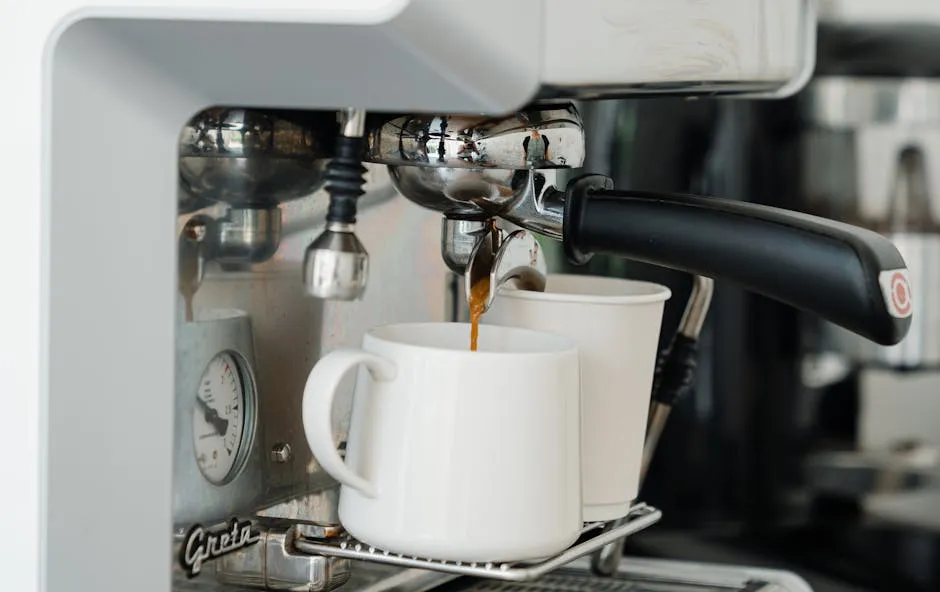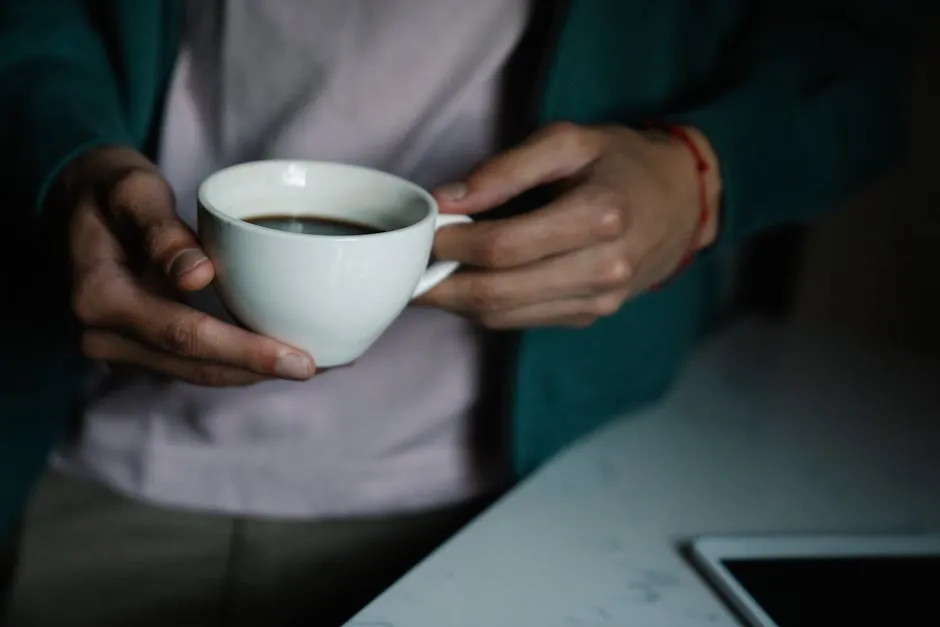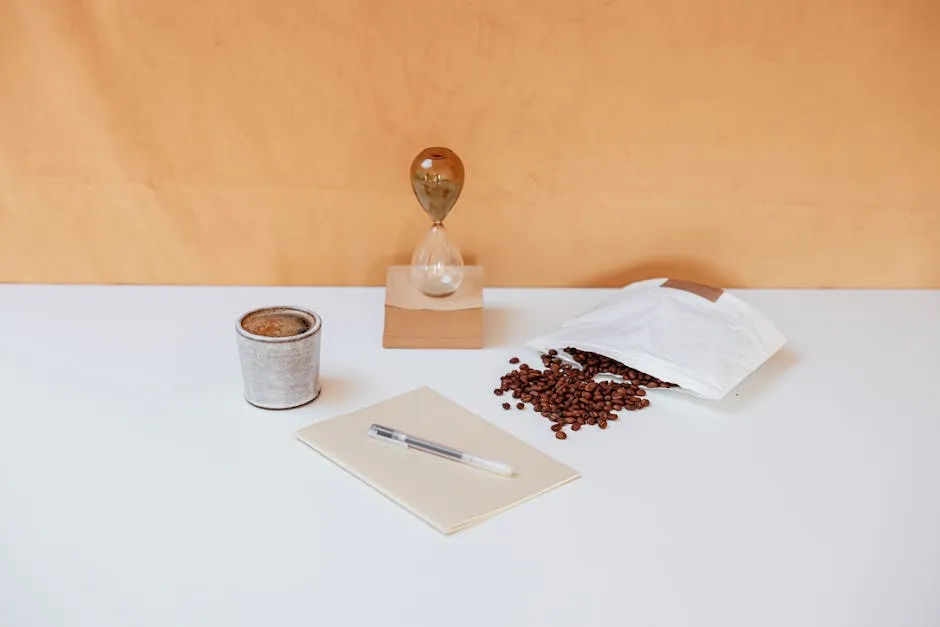
Why Does Coffee Make Me Sleepy?
Introduction
Have you ever noticed that coffee can sometimes make you feel sleepy? It’s an odd contradiction. Coffee is famous for boosting energy, yet many people experience fatigue after drinking it. With coffee being one of the most popular beverages worldwide, its effects can vary significantly from person to person. This article aims to unpack the reasons behind this puzzling phenomenon and help you understand your own coffee experience.
To truly enjoy your coffee experience, consider starting with a Coffee Beans Variety Pack. This way, you can explore different flavors and find the one that keeps you alert and energized!
Summary and Overview
This article will cover several key points about why coffee might make you sleepy. Caffeine, the main ingredient in coffee, has complex effects on the body. While it can enhance alertness, it can also lead to feelings of fatigue. Understanding your personal response to coffee is crucial. Factors such as hydration levels, sugar intake, and individual caffeine tolerance all play a vital role in how coffee affects you.

Speaking of hydration, pairing your coffee with a stylish Hydration Water Bottle can help you keep track of your water intake. It’s a great way to stay hydrated while enjoying your daily brew!
The Science Behind Caffeine and Sleepiness
How Caffeine Works in the Body
Caffeine works primarily by blocking adenosine receptors in the brain. Adenosine is a neurotransmitter that promotes sleepiness. When you consume coffee, caffeine binds to these receptors, preventing adenosine from slowing down brain activity. As a result, you feel more awake. However, caffeine doesn’t stop the production of adenosine. Once the caffeine wears off, the accumulated adenosine can bind to its receptors, leading to feelings of tiredness.
Statistics show that around 75% of American adults drink coffee, often consuming about 100 mg of caffeine per 8-ounce cup. This widespread use highlights the importance of understanding how caffeine impacts individual energy levels.

In addition to blocking adenosine, caffeine affects various neurotransmitters. It increases dopamine and norepinephrine, enhancing mood and alertness. However, the effects of caffeine can vary widely based on genetics. Some people metabolize caffeine quickly, while others do so slowly. This difference affects how long caffeine keeps you alert and when you might start feeling sleepy.
Understanding these mechanisms can help you better navigate your coffee habits. The key takeaway? Caffeine can boost your energy temporarily, but its effects are not permanent. Awareness of your own body and its responses to caffeine is essential for managing energy levels effectively.

If you’re looking to enhance your brewing process, consider investing in a Coffee Grinder. Freshly ground coffee can make a world of difference in flavor and aroma!
Reasons Coffee Might Cause Sleepiness
Caffeine Tolerance
Have you noticed that your morning coffee isn’t as effective anymore? You’re not alone. Many coffee drinkers develop a tolerance to caffeine over time. This means that the same amount of caffeine no longer has the same energizing effect.
When you consume caffeine regularly, your body adapts. It often produces more adenosine receptors to counteract the blocking effects of caffeine. As a result, when you drink coffee, more adenosine can bind to these receptors, leading to increased feelings of sleepiness once the caffeine wears off. This can create a cycle where you feel the need for more coffee to achieve the same boost.
Understanding your body’s tolerance to caffeine can help you manage your intake better. Reducing caffeine consumption gradually can help reset your tolerance levels, allowing you to enjoy its energizing effects once again. For more insights on caffeine consumption, check out our article on why no caffeine after prp.

The journey to the perfect cup doesn’t stop there! You might also want to try a French Press Coffee Maker for a rich and full-bodied flavor that will elevate your coffee experience!
Dehydration Effects
Did you know that coffee can act as a diuretic? This means it can increase urination. While a few cups of coffee each day might not significantly impact your hydration, consuming larger amounts can lead to noticeable fluid loss.
When you become dehydrated, your body doesn’t function at its best. Dehydration can reduce blood volume, which means your heart has to work harder to pump blood. This can lead to feelings of fatigue and sluggishness.

To counteract this effect, it’s crucial to drink water alongside your coffee. Staying hydrated can help maintain your energy levels and cognitive function throughout the day. Aim to drink a glass of water for every cup of coffee you consume.
Consider grabbing a stylish Electric Kettle for Coffee for precise temperature control. This can enhance your brewing process and keep your coffee at the perfect temperature!
Blood Sugar Fluctuations
Do you sweeten your coffee? If so, that might be contributing to your sleepiness. Many coffee drinks contain added sugars, which can cause rapid spikes and drops in blood sugar levels.
When you consume sugar, your body produces insulin to help regulate blood sugar. However, after the initial surge of energy, your blood sugar can crash. This “sugar crash” often leads to feelings of fatigue and drowsiness.

To avoid these fluctuations, consider reducing the amount of sugar in your coffee. If you enjoy sweet coffee, try using Natural Sweeteners (like Stevia) or opting for lower-sugar alternatives. Balancing your coffee with protein-rich foods can also help stabilize blood sugar levels, keeping you alert and energized throughout the day.
Stress and Caffeine
Did you know that caffeine can actually increase stress? When you consume coffee, your body releases cortisol, the stress hormone. This spike can lead to an initial feeling of alertness. However, as the caffeine wears off, you may feel a wave of fatigue. This fatigue can be exacerbated by stress. When you’re stressed, your body is already in a heightened state. Adding caffeine to the mix can create a rollercoaster of energy and exhaustion. Have you ever felt more tired after a stressful day, even with coffee in hand? It’s a common experience.

The Quality of Coffee
The quality of your coffee matters more than you might think. Poorly sourced coffee can contain mycotoxins. These toxins are byproducts of mold that can thrive on coffee beans. Consuming mycotoxins may lead to fatigue and other health issues. On the other hand, high-quality coffee beans can positively impact your health. Fresh, well-sourced coffee often contains more beneficial antioxidants. These antioxidants can help improve your energy levels in the long run. So, next time you grab a cup, consider where it came from. Quality coffee could make a difference in how you feel.

If you want to explore the world of coffee further, consider a Coffee Tasting Journal. It’s a fun way to document your favorite brews and discover what you truly enjoy!
Individual Sensitivity Variations
Everyone reacts to caffeine differently. Some people are more sensitive to its effects due to genetic factors. These variations can influence how caffeine is metabolized in your body. For instance, if you have a genetic predisposition to caffeine sensitivity, you might experience fatigue even after a small amount of coffee. Additionally, personal health conditions can play a role. Conditions like anxiety or gastrointestinal issues can exacerbate the effects of caffeine, leading to increased tiredness. It’s essential to know your body and how it responds to caffeine. Understanding your sensitivity can help you manage your intake effectively.

Timing of Consumption
When it comes to coffee, timing is everything. Drinking coffee too close to bedtime can disrupt your sleep. It’s best to stop caffeine intake at least six hours before you hit the pillow. This gives your body time to process the caffeine and minimizes the chance of feeling sleepy the next day. Think about it—have you ever had a late afternoon coffee that kept you awake at night? Keeping track of when you drink coffee can help you avoid this pitfall.

Staying Hydrated
Staying hydrated is crucial when enjoying coffee. Coffee can act as a diuretic, leading to increased urination and potential dehydration. Dehydration can sap your energy and make you feel tired. To counter this, aim to drink water alongside your coffee. A good rule of thumb is to have a glass of water for every cup of coffee. You can also include hydrating foods in your diet, like fruits and veggies. This will help maintain your energy levels throughout the day.
If you’re a coffee lover, you might also appreciate a Coffee Mug Warmer to keep your beverage at the ideal temperature while you sip away!
Choosing the Right Coffee
Not all coffee is created equal. Choosing high-quality, low-sugar coffee options can make a difference in how you feel. Higher quality beans often contain more antioxidants, which can benefit your health. When it comes to brewing methods, different techniques can yield varying caffeine levels. For example, cold brew coffee typically has more caffeine than regular drip coffee. Experimenting with different types might help you find what energizes you best without the crash.

For those who enjoy cold coffee, a Cold Brew Coffee Maker can be an excellent addition to your kitchen arsenal!
FAQs
Can coffee make me sleepy?
Absolutely! Coffee can sometimes cause sleepiness due to various factors. For starters, dehydration plays a significant role. Coffee acts as a diuretic, increasing urination and leading to fluid loss. If you don’t drink enough water, this can leave you feeling sluggish and tired. Additionally, if you add sugar to your coffee, it might contribute to a ‘sugar crash.’ The body processes sugar quickly, causing blood sugar levels to spike and then drop. This sudden decrease can leave you feeling fatigued. Also, consider your overall hydration. When you’re dehydrated, your body struggles to maintain energy levels. It’s essential to drink enough water throughout the day, especially if you’re a coffee lover. If you find yourself getting sleepy after your daily brew, it might be time to reassess your hydration and sugar habits.
What are the signs of caffeine withdrawal?
Caffeine withdrawal can lead to some pretty noticeable symptoms. Common signs include headaches, fatigue, irritability, and trouble concentrating. Many people also report feeling drowsy during withdrawal periods. These symptoms can start within 12 to 24 hours after your last caffeine hit and can last several days to even weeks. If you’re trying to cut back on caffeine, it’s best to do so gradually. This approach can help minimize withdrawal symptoms. Listen to your body and take note of how you feel during this process to find a comfortable balance.
How long does caffeine remain in the system?
Caffeine can stay in your system for quite a while. On average, it takes about 5 to 6 hours for half of the caffeine to be eliminated from your body. However, this can vary widely depending on factors like genetics, age, and overall health. Some people metabolize caffeine more quickly, while others may take longer. If you’re trying to avoid sleepiness after coffee, consider how long caffeine lingers in your body. It’s generally a good idea to stop consuming caffeine at least six hours before bedtime. This way, you can reduce the chances of it interfering with your sleep quality.
Does the type of coffee affect how I feel?
Yes, the type of coffee can significantly influence how you feel after drinking it. Different brewing methods and coffee beans contain varying levels of caffeine. For instance, a cold brew typically has more caffeine than a standard cup of drip coffee. Additionally, coffee blends can also differ in caffeine content and flavor profiles. Choosing high-quality coffee beans can also matter. Beans that are poorly sourced may contain mycotoxins, which can contribute to fatigue. So, the next time you grab your cup of joe, consider trying different types or brands to see which one gives you the best boost.
What are some alternatives to coffee for energy?
If you’re looking for energy without the caffeine crash, consider some tasty alternatives. Herbal teas, like peppermint or ginger, can provide a refreshing lift without caffeine. Staying hydrated with water is also essential for maintaining energy levels. You can also snack on nutrient-rich foods that boost energy. Foods like nuts, fruits, and yogurt can provide lasting energy without the dips associated with sugar-laden coffee drinks. Incorporating different energy-boosting snacks into your routine can help you feel alert without relying solely on coffee.
How can I tell if I’m caffeine sensitive?
Caffeine sensitivity varies from person to person. If you notice symptoms like jitteriness, anxiety, or sleep disturbances after consuming caffeine, you might be sensitive. Some people may even feel tired after a small amount of coffee, which can be a sign of sensitivity. To manage this, consider tracking your caffeine intake and how you feel afterward. If you consistently experience negative effects, it might be best to cut back or switch to lower-caffeine options like green tea. Paying attention to your body’s reactions is key to finding the right balance.
Is it okay to drink coffee every day?
Drinking coffee every day is generally considered safe for most people. In fact, research suggests that moderate coffee consumption can have health benefits, including improved mood and cognitive function. However, moderation is essential. Aim for no more than 400 mg of caffeine daily, roughly equivalent to 2 to 4 cups of coffee. Be mindful of how coffee affects your body. If you notice increased fatigue or sleep disturbances, it may be time to adjust your intake. Listening to your body and understanding your coffee habits can help you enjoy your daily brew without the unwanted side effects.
Please let us know what you think about our content by leaving a comment down below!
Thank you for reading till here 🙂 Also, if you’re looking to cozy up while enjoying your coffee, consider a Weighted Blanket for added comfort!
All images from Pexels




